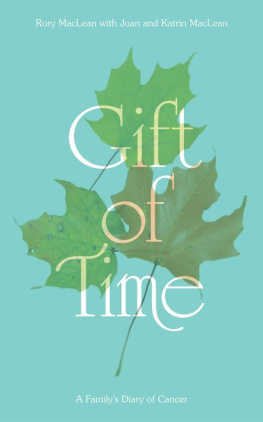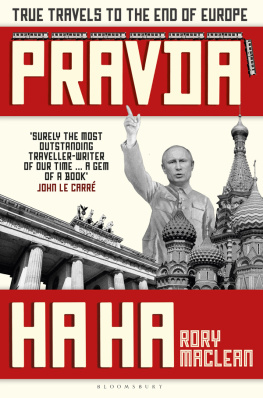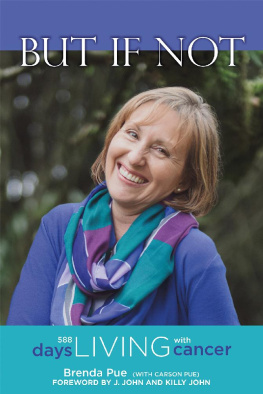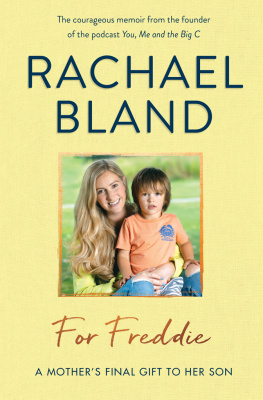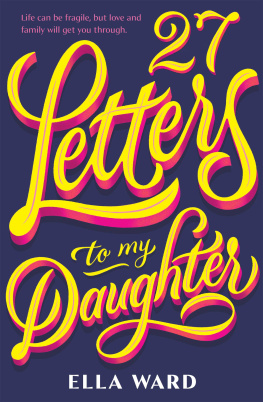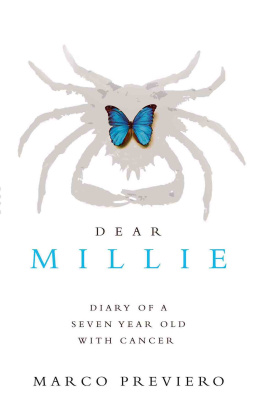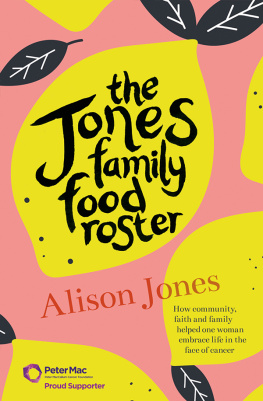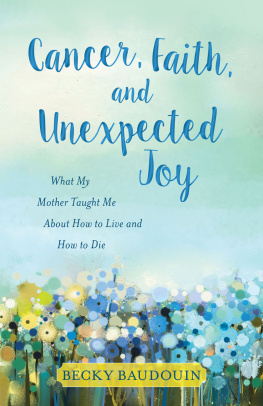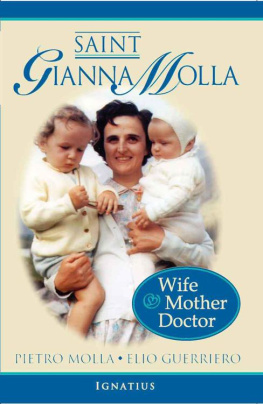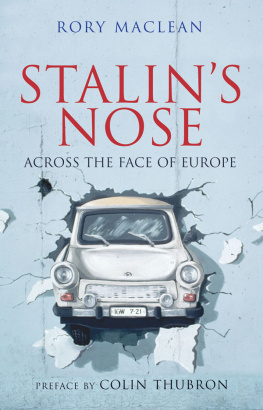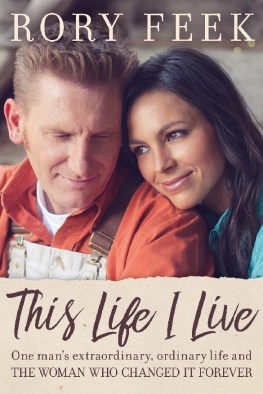I did.
beloved on the earth.
I dont think of you every day now. I no longer expect to wake at night and see you smiling at me from the end of the bed. I dont glimpse your face in a crowd or repeat your phone number over and over in my head like the coda from one of your scratched, Broadway musical LPs. It has been seven years since I held your hand, since you took your last breath and I opened the bedroom window to let your soul fly free. I never thought it would happen.
Do you remember our plan to stay in touch? We never speculated which one of us would be the first to go. It was always going to be you of course, fatal accident or natural disaster notwithstanding. The vast majority of parents die before their children. But whoever went first, we agreed to try to send the survivor a sign, a kind of cosmic postcard reporting, Tremendously busy here, craic good, did you return the books to the library? We would show that life wasnt simply a biological phenomena, that death was a kind of evolution, that love endured beyond the grave.
In the days immediately after your death I believed you were still near. I felt your presence in the next room, somewhere above your golden armchair. Then I sensed you standing behind me, here in my study. At any moment I expected to catch your reflection in my computers screen. I made two cups of blackcurrant tea in faith as much as out of habit. I waited for you to tap me on the shoulder and remind me that credulity is spelt with one t. I felt your warmth on my back, on my neck, against my ear.
But like a dying fire, the warmth faded away. I could no longer deny that you had been zipped into a black body bag and carried away, the stretchers metal frame gouging a fingers length from the wallpaper. I came to see our pact for what it was, an illusion conjured up to protect soft hearts from hard truth. I could no longer believe that you were off on an adventure, that your spirit lived on, that we would meet again one day. There would be no postcard from the hereafter; there is no other place apart from this lone, high-skied paradise. With that understanding I ceased to be the whimsical, gentle child you had raised. Your love had nurtured me in a way that allowed me to believe in my own uniqueness. After you had gone, I became ordinary. I was no longer invincible. I stumbled and fell. On the platform at Victoria station I wept.
Since then youve come to me only in wishes. I wish that youd left us your granola recipe and that Id known sooner about your love for Formula One racing. I wish that you could have seen me this morning winding the battered travel clock that you gave to me on the day I moved away from home, winding and winding it so that its brass heartbeat might never stop. I wish youd been beside me in the shadows last night, watching Katrin gaze at another world in that joyful photograph of us, light and laughing in your kitchen one year before the diagnosis. I wish you could meet your five-year-old grandson Finn, bent over your old Smith-Corona, typing his first book (The Sea and the View God knows where he got that from) on three sheets of A4 stapled together. I want you to ring the doorbell right now, refuse an offer of tea so as not to disturb my writing and invite us to the Cottage for Sunday dinner.
I read somewhere that we dont work through grief but that it works through us, that it is a process. In the first years I lost patience, humour and joy. Time has helped me through the process, as have Katrin, family and friends; as does Finn. Day by day, through him, I rediscover joy (as well as an ability to design eccentric bubble-blowing machines). Our hours together are as precious as any love that anticipates death, for its unwanted shadow has grafted itself to me.
Until a few months ago I still found it hard to open these diaries. Now all our thoughts are interwoven, your handwritten pages and Post-its with our bubble-jet typescripts . The book is a way of bringing all of us together again. But writing is also part of who I am, just as reading was part of who you were. I perceive the world by rendering it into words. I distil experience, portraying the world as I perhaps wish it could be (you remember as a child I made a card-and-crayon world atlas in which imaginary lands and stories were interleaved with the countries I knew). This longing for a more intense reality reaches back to those first happy years of childhood, to a lost world, which I have often tried to recreate in my writing.
However exclusive every grief may be, there are still many aspects of it that are shared. In your quiet and gallant way you showed us how self-discipline and love can delay the end. By strength of will you ordered your lungs to keep breathing and your heart to keep beating. You let us be a part of your struggle and dying and that was a privilege, a gift. Now in a time of changing sensibilities our experience may help others, and their families, to face death at home with dignity, to have una bella morte a good death, as the Italians say surrounded by family and friends, in peace.
Last night in a dream Katrin gave me a childs plastic telescope. Look through it and you may see your Mum, she told me. Slowly, with a mixture of excitement and trepidation, I lifted the spy-glass to my eye.
Thursday 30th
Rory: Crisp winters day. Hard frost. High blue sky. Ice underfoot. This morning Mum comes home. I pick her up from the hospital. Barbara, the ward sister, wheels her out to the car. As I lower her into the passenger seat she holds onto my neck, as light as a pillowcase of bones. Barbara says twice, Your family want you to go home with them.
None of the other patients had visitors over Christmas. In the ward linger a dozen abandoned souls: Mary, a seventy-five-year-old ballroom dancer who lost both a leg and a husband last month (It was a good life until Will died); diabetic Jerry who wont eat (Just one piece of toast, entreats a nurse. Ill give you jam.); Mrs Windsor who has caught the ward cough (Any jobs for me? she rasps five times a day, pleading to be useful, unable to lift herself out of bed. Can I arrange the flowers again?). Two rings of beds in which tired, cadaverous bodies snore, wee and hawk into plastic beakers marked Sputum. I smell antiseptic and fear. I hear the last rites being read behind a cheerful NHS curtain. Day and night a frail widower calls out for his wife. Liz Liz Ma Another geriatric stares at me, his eyes not moving, not even focusing. The English have been notoriously poor at handling death, hiding away feelings and relatives at one of lifes most emotional moments, condemning themselves to years of inhibition and blocked grief. Im not leaving Mum here to die alone. She is the only patient in the ward with her own teeth.
On the drive back to our village I put my hand on her leg. It feels bone thin. Only last month we walked together around the churchyard, her hand in the crook of my arm. She squeezes my hand. At least we have this gift of time together, she says.
Yesterday I bought her a new diary. I carried from her cottage a cardboard box of family photographs. On the chest in the spare room I set her favourite portrait of my father, on the bridge of a corvette gazing out to sea. In a corner I positioned her golden armchair, a towel on its seat. On the bedside table I stacked her unopened Christmas cards. Half-a-dozen house plants crowded the window sill. I stowed our own things in the attic, to be put back at a later date. In the evening I practised piggy-backing Katrin up and down the stairs. Now she awaits us at the front door.
I feel so happy to be home, Mum tells her as I carry her into her new home. Her last home.

